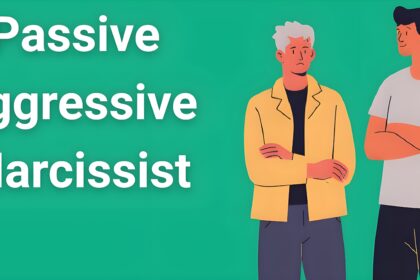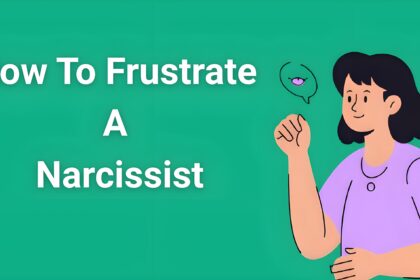What do narcissists want? 5 things they crave most – this question haunts every survivor who has ever tried to understand the psychological maze of living with, loving, or dealing with a narcissistic individual. After working with thousands of survivors through NarcissismExposed.com as a Certified Narcissistic Abuse Specialist, I can tell you that understanding these core drives will either validate everything you’ve suspected about their behavior or completely reshape how you view their seemingly random acts of manipulation and control.
- Understanding the Narcissistic Need System
- What Do Narcissists Want? 5 Things They Crave Most: The Complete Breakdown
- The Interconnected Web: How These 5 Cravings Work Together
- Breaking Free: Using This Knowledge for Protection and Healing
- Protecting Yourself: Practical Strategies Based on Understanding Their Cravings
- Key Takeaways: Understanding What Narcissists Want for Your Protection
- Frequently Asked Questions
The devastating truth is that everything narcissists do serves five fundamental psychological needs that drive them like addiction. Unlike healthy individuals who can regulate their own emotions and find fulfillment through genuine relationships, narcissists are trapped in cycles of seeking external validation and control to maintain their fragile sense of self.
Understanding what narcissists want isn’t about developing sympathy for them – it’s about recognizing the patterns that keep you trapped, manipulated, and confused. When you understand their core drives, their seemingly unpredictable behavior becomes disturbingly predictable, and you can finally stop taking their actions personally while developing effective protection strategies.
This knowledge is power. It’s the difference between being reactive and being strategic, between feeling crazy and feeling clear, between staying trapped and breaking free.
Understanding the Narcissistic Need System
Before exploring what do narcissists want? 5 things they crave most, it’s essential to understand that narcissistic individuals operate from a fundamentally different psychological framework than healthy people. Their wants and needs aren’t based on genuine self-awareness or authentic connection – they’re driven by deep-seated psychological deficits that create insatiable cravings.
Narcissists exist in a constant state of internal emptiness and shame that they cannot tolerate or acknowledge. This creates a psychological system where they must constantly seek external sources to regulate their emotions, maintain their self-image, and avoid confronting their true self. Unlike healthy individuals who can find fulfillment through internal validation and genuine relationships, narcissists are psychologically dependent on others to provide what they cannot generate internally.
The Psychological Vacuum
Research from Harvard Medical School reveals that narcissistic individuals have structural differences in brain regions responsible for self-regulation, empathy, and authentic self-awareness. These neurological differences create what psychologists call a “psychological vacuum” – an internal emptiness that must be constantly filled through external sources.
This vacuum manifests as:
- Inability to self-soothe or regulate emotions independently
- Constant need for external validation to maintain self-worth
- Lack of genuine self-awareness that would enable authentic growth
- Incapacity for intrinsic motivation or genuine satisfaction
- Dependence on others to provide emotional regulation and identity confirmation
The result is a psychological system that operates like an addiction: narcissists need increasingly more dramatic forms of supply to achieve the same emotional regulation, and they experience withdrawal-like symptoms when their sources are threatened or removed.
The Supply-Driven Existence
Everything narcissists do can be understood through the lens of “narcissistic supply” – the attention, admiration, control, and validation they extract from others to fill their psychological vacuum. Understanding this supply-driven existence explains why their behavior often seems calculated, manipulative, and strategic rather than spontaneous or authentic.
Supply comes in two primary forms:
- Primary Supply: Direct attention, admiration, and validation from others
- Secondary Supply: Control, dominance, and the ability to influence others’ emotions and actions
The addiction-like quality of supply-seeking means:
- They cannot simply “get enough” and be satisfied long-term
- They require multiple sources to avoid dependency on any one person
- They experience genuine panic when supply sources are threatened
- They will escalate manipulation tactics when normal methods fail
- They view all relationships primarily through the lens of supply potential
What Do Narcissists Want? 5 Things They Crave Most: The Complete Breakdown
Understanding what do narcissists want? 5 things they crave most provides crucial insight into the psychological drives behind their manipulative behavior. These five core cravings explain virtually every narcissistic action and help survivors recognize patterns they may have dismissed or misunderstood.
1. Absolute Control Over Others’ Emotions and Reactions
The first and most fundamental thing narcissists crave is complete control over how others feel and respond to them. This isn’t just about getting their way – it’s about the psychological high they experience when they can manipulate someone’s emotional state with precision and predictability.
This control manifests as:
- Engineering situations to provoke specific emotional reactions
- Using intermittent reinforcement to create emotional dependence
- Monitoring and adjusting their behavior based on your emotional responses
- Creating drama or crises to generate attention and emotional investment
- Withholding or providing affection strategically to maintain control
Why they crave this: Controlling others’ emotions provides narcissists with a sense of power that temporarily fills their psychological vacuum. When they can predict and manipulate your reactions, they feel omnipotent rather than empty and inadequate.
How this impacts you: You find yourself constantly monitoring your own emotions and reactions, walking on eggshells, and feeling like your emotional responses somehow belong to them rather than you.
Recognition signs:
- They seem to enjoy pushing your buttons and watching your reactions
- Your emotional responses become the focus rather than the issues that caused them
- They know exactly what to say or do to make you feel specific emotions
- They withdraw affection when you don’t respond as expected
- They create unnecessary drama when things are going too smoothly
2. Constant Admiration and Validation (Narcissistic Supply)
The second core craving that answers what do narcissists want? 5 things they crave most is an endless stream of admiration, praise, and validation from others. This isn’t simple vanity – it’s a psychological necessity that functions like oxygen for their fragile self-esteem.
Their supply-seeking behavior includes:
- Fishing for compliments through false modesty or self-deprecation
- Creating situations where they appear heroic, successful, or superior
- Collecting testimonials and praise like trophies
- Name-dropping and status displays to generate admiration
- Becoming angry or depressed when they don’t receive expected praise
The insatiable nature of their need means:
- No amount of admiration ever feels like “enough”
- They require constant topping-up of their validation reserves
- They interpret neutral responses as criticism or rejection
- They compete with others for admiration, even in inappropriate contexts
- They feel genuinely threatened when others receive praise or attention
Why this matters for survivors: Understanding their addiction to admiration helps explain why they react so violently to criticism, why they need multiple sources of validation, and why your opinion of them becomes disproportionately important to their emotional stability.
Impact on relationships:
- You become responsible for constantly affirming their worth and abilities
- Your own achievements are minimized or hijacked for their validation needs
- Conversations become opportunities for them to gain admiration rather than genuine connection
- You feel exhausted from the constant emotional labor of keeping them validated
- They withdraw love when you fail to provide adequate admiration
3. Superior Status and the Need to Feel Special
The third element of what do narcissists want? 5 things they crave most involves positioning themselves as superior, unique, or special compared to others. This craving drives their competitive behavior, status obsession, and need to devalue others to elevate themselves.
Status-seeking behaviors include:
- Constantly comparing themselves favorably to others
- Exaggerating their achievements, connections, or abilities
- Devaluing others’ accomplishments or qualities
- Seeking exclusive access to people, places, or experiences
- Creating hierarchies where they position themselves at the top
The psychological function of superiority:
- Provides temporary relief from their underlying shame and inadequacy
- Creates distance from the “ordinary” people they fear being grouped with
- Generates the admiration and envy they crave from others
- Justifies their entitlement to special treatment and consideration
- Masks their deep-seated fear of being discovered as inadequate
How this affects their victims:
- You’re expected to reinforce their specialness while minimizing your own achievements
- They become threatened by your success or unique qualities
- You’re devalued when you don’t support their superior self-image
- They use your relationship to enhance their status with others
- Your worth becomes measured by how well you reflect their specialness
Red flags to recognize:
- They can’t genuinely celebrate others’ achievements without making it about themselves
- They have elaborate explanations for why they’re different from “regular” people
- They expect special treatment and become angry when treated normally
- They put others down to build themselves up
- They see life as a competition they must win rather than experiences to share
4. Power and Dominance in All Relationships
The fourth crucial aspect of what do narcissists want? 5 things they crave most is the establishment and maintenance of power dynamics where they hold dominant positions over others. This isn’t just about winning arguments – it’s about psychological dominance that makes them feel secure and in control.
Power-seeking manifests as:
- Needing to have the final word in discussions or decisions
- Using financial, emotional, or social leverage to maintain control
- Creating dependency in others through strategic giving and withholding
- Gathering information about others’ vulnerabilities to use as leverage
- Establishing themselves as the authority or expert in most situations
The psychological drive behind power-seeking:
- Power provides the illusion of safety and control over their environment
- Dominance generates the respect and fear they equate with love
- Being in charge means never having to face criticism or accountability
- Power allows them to control the narrative and avoid uncomfortable truths
- Dominance feeds their superiority complex and validates their self-image
Impact on relationships:
- Decision-making becomes about who has more power rather than what’s best for everyone
- You find yourself gradually giving up autonomy and independent thinking
- They use knowledge of your weaknesses against you during conflicts
- Your opinions and preferences become secondary to maintaining their dominance
- The relationship dynamic revolves around their comfort and control rather than mutual respect
Signs of their power-seeking:
- They can’t tolerate being wrong or corrected, even about minor facts
- They need to control major decisions regardless of their expertise in the area
- They use silent treatment, withdrawal, or emotional manipulation when challenged
- They gather ammunition about others’ mistakes or vulnerabilities
- They position themselves as indispensable or uniquely qualified
5. Emotional Regulation Through Others (Narcissistic Outsourcing)
The fifth and perhaps most damaging element of what do narcissists want? 5 things they crave most is using other people as emotional regulation systems. Narcissists lack the internal capacity to manage their own emotions, so they outsource this crucial function to the people around them.
Emotional outsourcing includes:
- Making others responsible for their mood and emotional state
- Using others’ reactions to determine how they should feel about situations
- Creating crises when they need emotional stimulation or attention
- Requiring others to absorb and process their difficult emotions
- Becoming dysregulated when their emotional support systems are unavailable
Why they can’t self-regulate:
- Neurological differences in brain regions responsible for emotional processing
- Lack of authentic self-awareness needed for internal emotional management
- Absence of healthy coping mechanisms developed during normal childhood development
- Dependence on external validation that began early in their psychological development
- Fear of experiencing emotions alone due to their association with childhood shame and inadequacy
The cost to their victims:
- You become an emotional shock absorber for their unprocessed feelings
- Your own emotional needs become secondary to managing their emotional state
- You develop hypervigilance about their moods and emotional triggers
- You lose touch with your own emotions while constantly monitoring theirs
- Your nervous system becomes dysregulated from chronic emotional labor
Recognizing emotional outsourcing:
- They blame others for “making” them feel specific emotions
- Their mood becomes your responsibility and your problem to solve
- They can’t tolerate being alone with their thoughts and feelings
- They create emotional emergencies that require immediate attention from others
- They show little interest in your emotional experiences unless they affect them directly
The Interconnected Web: How These 5 Cravings Work Together
Understanding what do narcissists want? 5 things they crave most becomes even more powerful when you recognize how these needs work together to create the complex manipulation patterns that survivors experience. These cravings don’t operate in isolation – they form an interconnected web that drives narcissistic behavior.
The Reinforcement Cycle
Each of the five cravings reinforces and amplifies the others, creating an escalating cycle of need that becomes increasingly difficult to satisfy. This explains why narcissistic behavior often intensifies over time rather than improving as relationships deepen.
The cycle typically works like this:
- Control over your emotions provides them with validation of their power
- Admiration from you reinforces their sense of superiority
- Superior status justifies their need for dominance in the relationship
- Power and control enable them to use you for emotional regulation
- Emotional regulation through you provides temporary relief that requires increasing amounts of control to maintain
This interconnected nature explains why:
- Setting boundaries in one area often triggers escalation in others
- Providing what they want in one area increases demands in all areas
- Partial compliance never satisfies them because all five needs remain active
- Their behavior seems to get worse rather than better when you try to meet their needs
- Complete withdrawal of supply in any area can trigger extreme reactions
The Escalation Pattern
Because these five cravings are fundamentally insatiable, narcissists require increasingly dramatic methods to achieve the same psychological relief. This escalation pattern explains why relationships with narcissists typically deteriorate over time despite victims’ increased efforts to please them.
Escalation typically involves:
- More frequent and intense emotional manipulation tactics
- Expansion of control into new areas of your life
- Increased demands for validation and attention
- More extreme methods of asserting dominance and superiority
- Greater dependency on you for emotional regulation with less reciprocal support
Breaking Free: Using This Knowledge for Protection and Healing
Understanding what do narcissists want? 5 things they crave most isn’t about developing sympathy for narcissists or trying to meet their needs more effectively. Instead, this knowledge provides crucial tools for protection, boundary-setting, and healing from narcissistic abuse.
Recognition and Validation
The first benefit of understanding these five core cravings is the validation it provides for your experiences. When you recognize that their behavior serves specific psychological functions rather than being random or personal, you can stop taking their actions as reflections of your worth or adequacy.
This recognition helps you understand:
- Their behavior patterns were never about you personally
- Your efforts to please them were doomed to fail because their needs are insatiable
- The confusion you felt was a normal response to abnormal relationship dynamics
- Your exhaustion came from trying to fill a psychological vacuum that cannot be filled
- The escalation you experienced was inevitable given their psychological structure
Strategic Boundary Setting
Understanding what drives narcissistic behavior enables you to set boundaries strategically rather than reactively. When you know what they’re trying to achieve, you can predict their responses and prepare protective strategies.
Strategic boundary setting includes:
- Recognizing manipulation attempts before you become emotionally engaged
- Refusing to participate in their emotional regulation without guilt
- Maintaining your own emotional autonomy despite their control attempts
- Setting limits on the validation and admiration you provide
- Protecting your achievements and self-worth from their competition and devaluation
Healing and Recovery Focus
Perhaps most importantly, understanding their psychological drives helps you redirect your energy from trying to fix them to focusing on your own healing and recovery. When you realize that their needs cannot be met through external sources, you can stop sacrificing yourself in futile attempts to satisfy them.
Recovery-focused strategies include:
- Rebuilding your own emotional regulation capacity
- Developing internal sources of validation and self-worth
- Creating authentic relationships based on mutual respect rather than supply provision
- Healing from the trauma of having your emotions controlled and manipulated
- Learning to trust your own perceptions and emotional responses
Protecting Yourself: Practical Strategies Based on Understanding Their Cravings
Now that you understand what do narcissists want? 5 things they crave most, you can develop specific protection strategies that address each of their core drives while preserving your own wellbeing and autonomy.
Emotional Control Protection
To protect yourself from their need to control your emotions:
- Practice emotional regulation techniques that don’t depend on their approval
- Refuse to justify or explain your emotional responses to them
- Maintain relationships and activities that provide emotional support outside their influence
- Set clear boundaries about what emotional labor you’re willing to provide
- Document patterns of emotional manipulation to validate your own experiences
Supply Management
To protect yourself from their insatiable need for validation:
- Limit the amount of praise and admiration you provide
- Refuse to compete with others for their attention or approval
- Maintain your own achievements and interests without seeking their validation
- Recognize that their need for admiration is not your responsibility to fulfill
- Build self-esteem that doesn’t depend on their opinion of you
Status and Superiority Boundaries
To protect yourself from their need to feel superior:
- Refuse to minimize your own achievements to make them feel better
- Maintain relationships with people who appreciate your unique qualities
- Don’t participate in their comparisons or competitions with others
- Set boundaries around their attempts to use you for status enhancement
- Remember that their need to feel special doesn’t require you to feel ordinary
Power and Dominance Resistance
To protect yourself from their need for dominance:
- Maintain decision-making autonomy in areas that affect your wellbeing
- Refuse to give up your independence for their comfort or control
- Set clear boundaries about what decisions require your input
- Don’t accept their authority in areas where they lack expertise or legitimate power
- Build support systems that validate your autonomy and decision-making capacity
Emotional Regulation Boundaries
To protect yourself from becoming their emotional regulation system:
- Refuse to take responsibility for their emotional state
- Set limits on the emotional labor you’re willing to provide
- Maintain your own emotional needs and responses as priorities
- Don’t absorb their unprocessed emotions or trauma
- Seek your own emotional support from people who can reciprocate
Key Takeaways: Understanding What Narcissists Want for Your Protection
Understanding what do narcissists want? 5 things they crave most provides essential knowledge for recognizing patterns, setting boundaries, and protecting yourself from manipulation while healing from narcissistic abuse.
Remember these crucial insights:
- Narcissists crave control, admiration, superiority, power, and emotional regulation from others due to their inability to provide these internally
- These five needs are fundamentally insatiable and will escalate over time regardless of how much you try to meet them
- Their behavior serves specific psychological functions rather than being random or personal attacks on your worth
- Understanding their drives helps you recognize manipulation before becoming emotionally engaged
- You cannot fix their psychological vacuum by sacrificing your own wellbeing and autonomy
- Protection requires strategic boundary-setting based on knowledge of their patterns rather than reactive responses
The path forward involves:
- Using this knowledge for protection rather than enabling their dysfunction
- Redirecting energy from meeting their needs to healing your own trauma
- Building relationships based on mutual respect rather than supply provision
- Developing internal sources of validation and emotional regulation
- Recognizing that their needs are not your responsibility to fulfill
- Setting boundaries that protect your autonomy and wellbeing
Understanding what narcissists want isn’t about developing sympathy for their struggles or trying to meet their needs more effectively. When survivors ask “what do narcissists want? 5 things they crave most,” they’re seeking knowledge that will help them understand patterns, protect themselves, and break free from confusion and manipulation.
Your emotional energy, validation, and autonomy are precious resources that deserve to be invested in people and relationships that can reciprocate and appreciate your care. The knowledge of what drives narcissistic behavior is power – use it to protect yourself, heal from abuse, and build the healthy, authentic relationships you deserve.
Moving forward means accepting that their cravings are their responsibility to address through appropriate professional help, not your responsibility to satisfy through self-sacrifice. You cannot love someone into wholeness when they lack the fundamental capacity for the reciprocal, authentic love that healthy relationships require.
Frequently Asked Questions
If I understand what narcissists want, can I give it to them to improve our relationship?
Understanding what narcissists want should never be used to try to satisfy their needs, as their five core cravings are fundamentally insatiable. Attempting to meet their needs for control, admiration, superiority, power, and emotional regulation will only escalate their demands and further deplete your own wellbeing. These needs arise from neurological and psychological deficits that cannot be filled through external sources. Use this knowledge for protection and boundary-setting, not for attempting to fix or satisfy them.
Why do narcissists seem to get worse when I try to meet their needs?
Narcissistic needs escalate rather than diminish when partially satisfied because they function like an addiction. Each of the five cravings reinforces the others, creating an interconnected web that requires increasingly dramatic fulfillment. When you meet one need, it temporarily relieves their psychological vacuum but quickly creates demands for more intense satisfaction. Additionally, your willingness to meet their needs signals that their manipulation tactics are working, encouraging them to escalate their demands and control tactics.
Is it possible for narcissists to meet these needs through therapy instead of relationships?
While therapy can sometimes help narcissists develop better behavioral control, the fundamental neurological differences that create their five core cravings cannot be easily addressed through traditional therapeutic approaches. Most narcissists use therapy to perfect their manipulation tactics rather than genuinely address their psychological deficits. The brain structures responsible for empathy, self-regulation, and authentic connection are significantly different in narcissistic individuals, making it extremely difficult for therapy to create the fundamental changes necessary for healthy relationships.
How do I stop feeling guilty about not meeting their emotional needs?
Guilt about not meeting a narcissist’s emotional needs is a conditioned response created by their manipulation tactics. Remember that healthy adults are responsible for their own emotional regulation, and using others as emotional support systems is a form of emotional abuse. The five cravings narcissists have are not legitimate emotional needs that partners should fulfill – they’re symptoms of a personality disorder that requires professional intervention. Your guilt is evidence of how effectively they’ve trained you to prioritize their comfort over your own wellbeing.
What if they threaten suicide or self-harm when I set boundaries around their needs?
Threats of suicide or self-harm are serious manipulation tactics designed to prevent you from setting boundaries around their five core cravings. Take all threats seriously by contacting emergency services or crisis intervention professionals, but don’t abandon your boundaries because of these threats. You cannot prevent someone from harming themselves by sacrificing your own wellbeing to meet their insatiable psychological needs. Professional crisis intervention is the appropriate response to genuine suicidal threats, not personal sacrifice or boundary abandonment.
Can children or family members help meet these needs so there’s less pressure on me?
Attempting to distribute the responsibility for meeting a narcissist’s five core cravings among multiple family members is dangerous and often leads to family-wide dysfunction. Children should never be expected to provide emotional regulation, validation, or control satisfaction for adults, as this creates developmental trauma and role reversal. Instead of trying to manage their needs through family systems, focus on protecting vulnerable family members (especially children) from being used as narcissistic supply sources and seek professional guidance for safely managing family dynamics.
How long does it take for narcissists to find new supply sources if I stop meeting their needs?
Narcissists typically maintain multiple supply sources simultaneously and often have backup sources ready when primary sources become unavailable. They may find new sources within days or weeks, but this doesn’t mean you should continue sacrificing yourself to prevent them from seeking elsewhere. Their need for multiple supply sources is evidence that no single person can meet their insatiable cravings. Focus on your own healing and protection rather than trying to control their supply-seeking behavior or feeling responsible for their emotional regulation.






